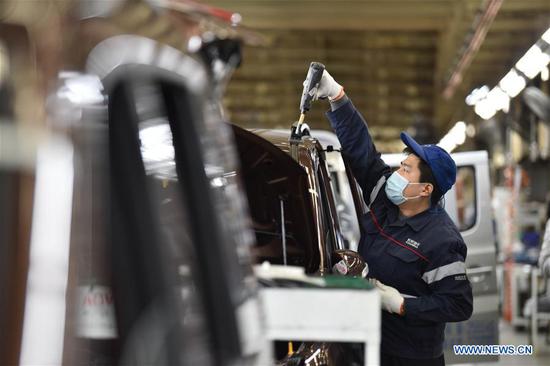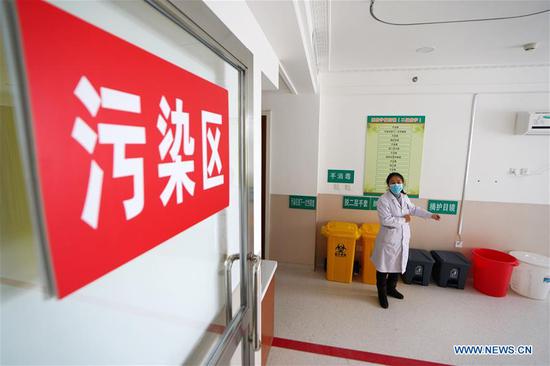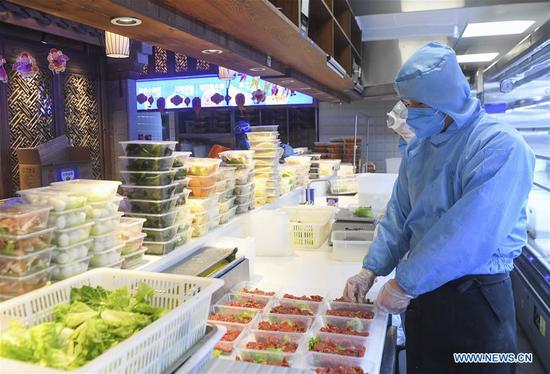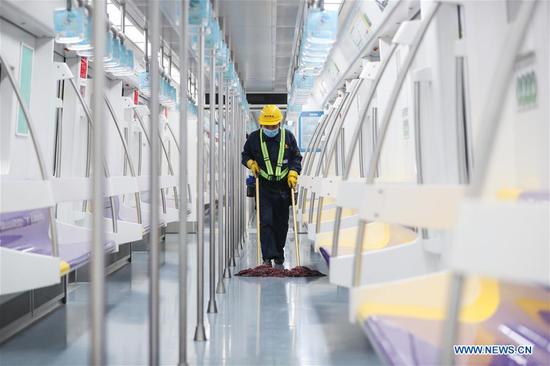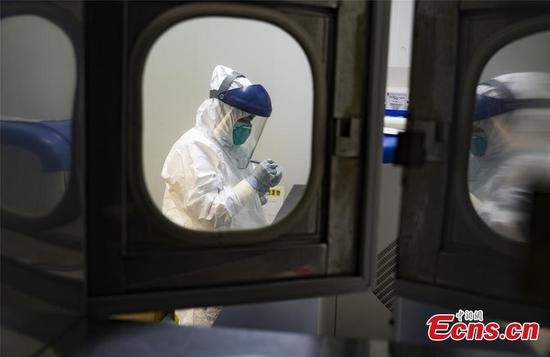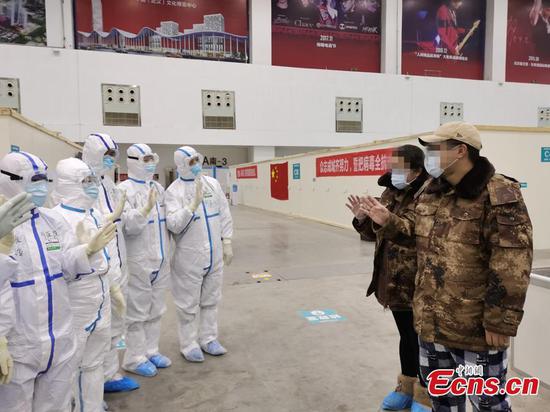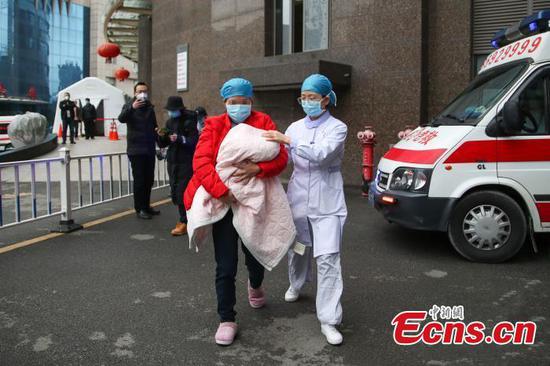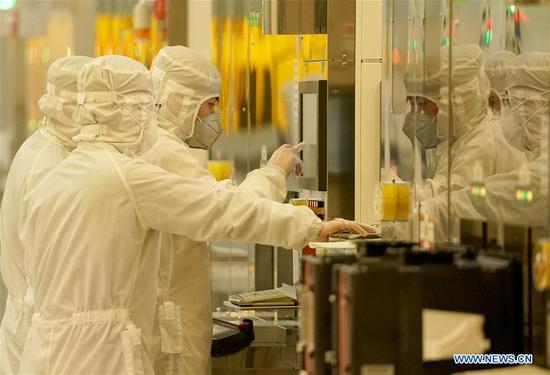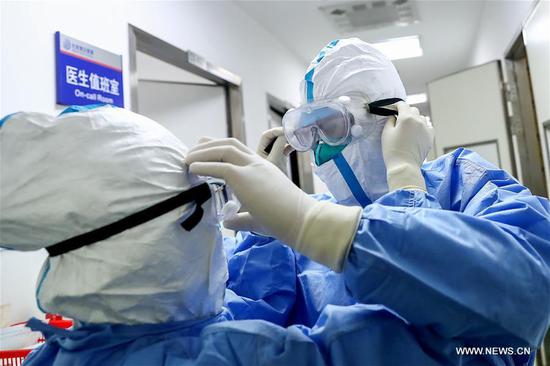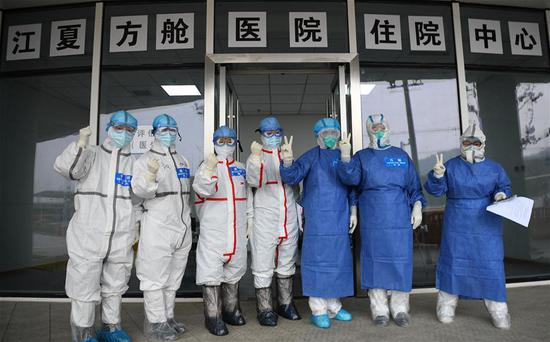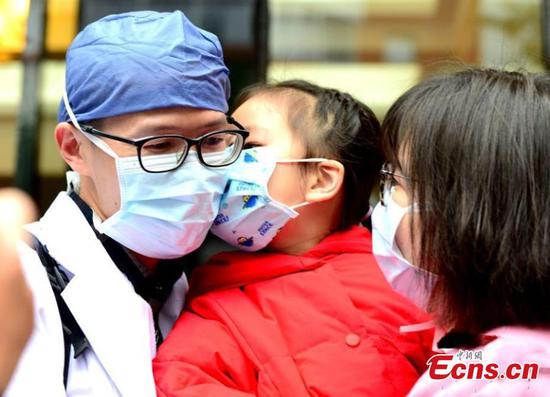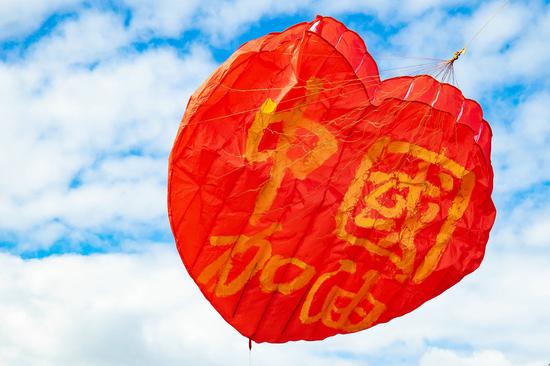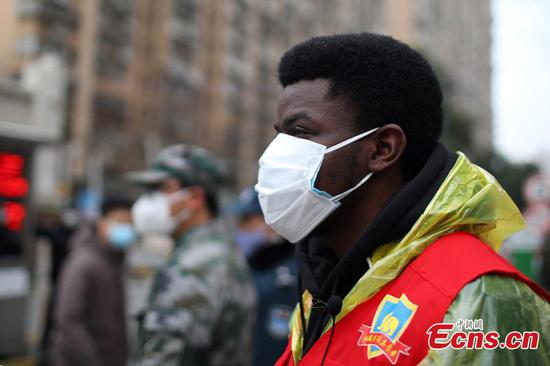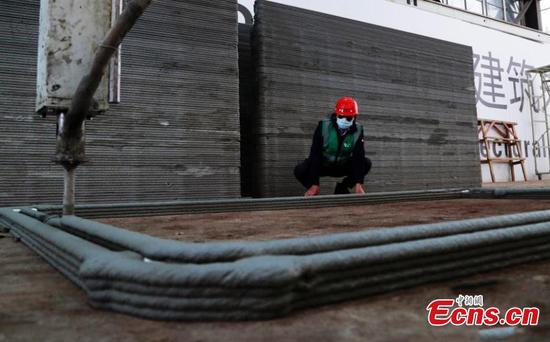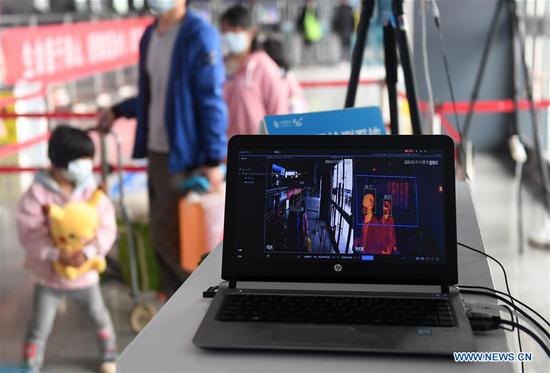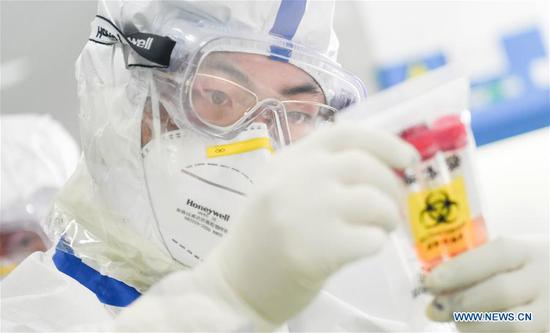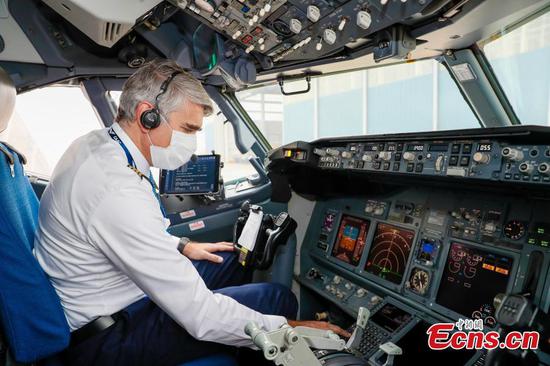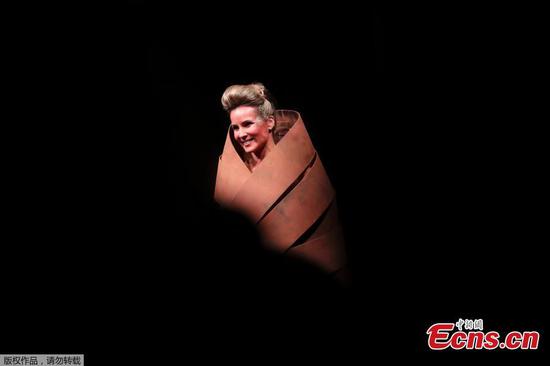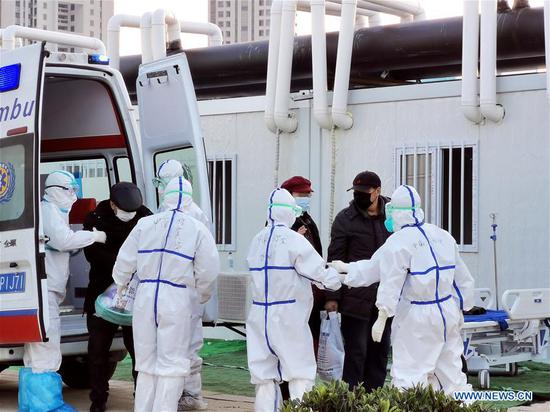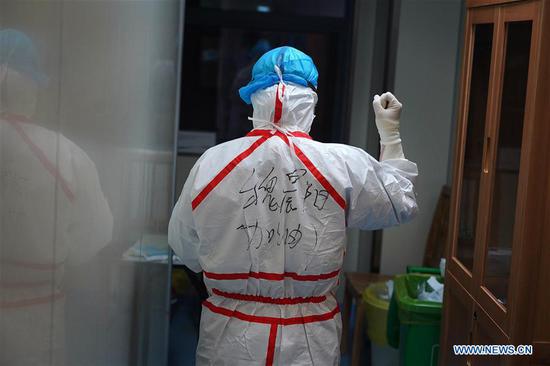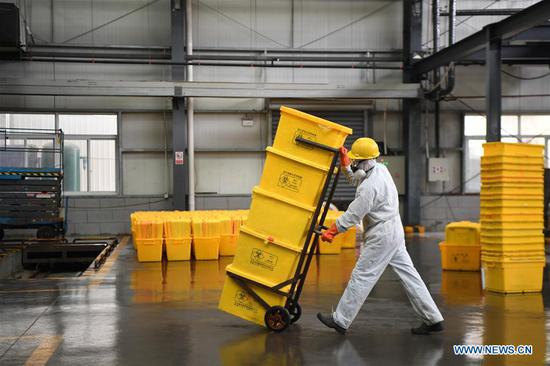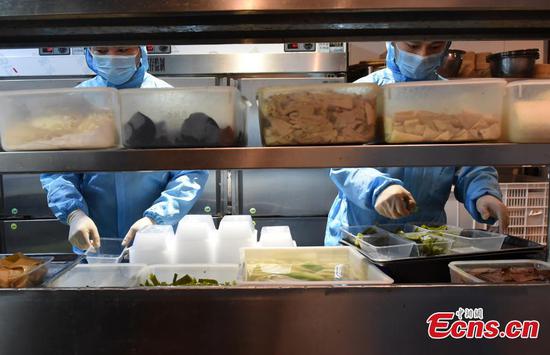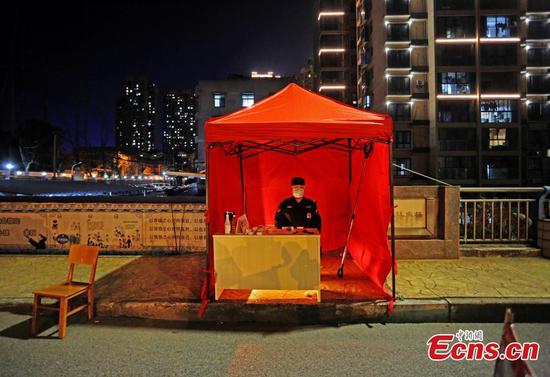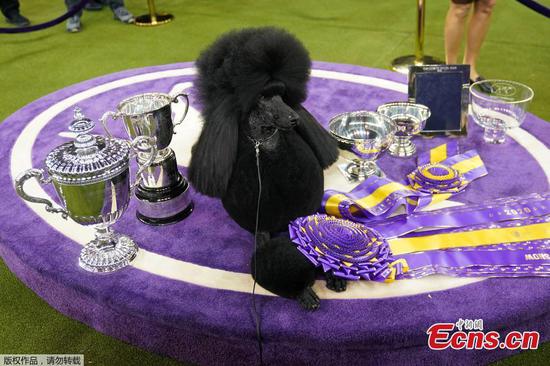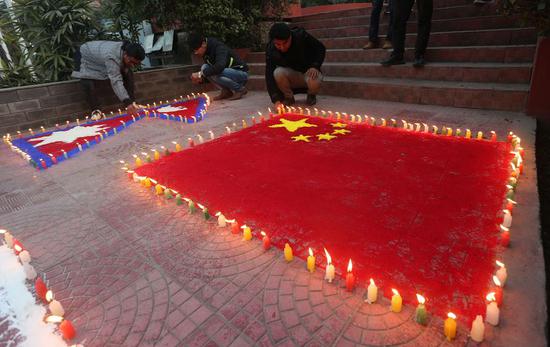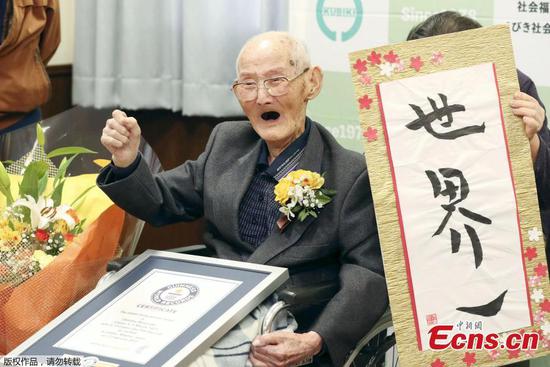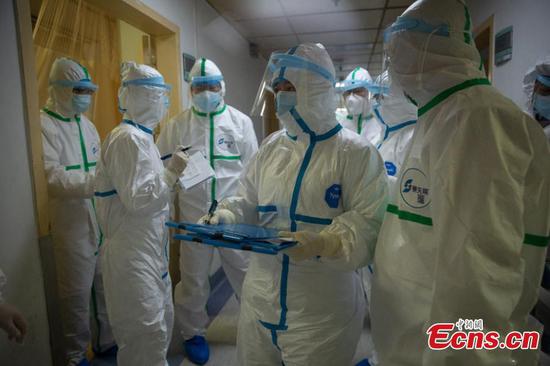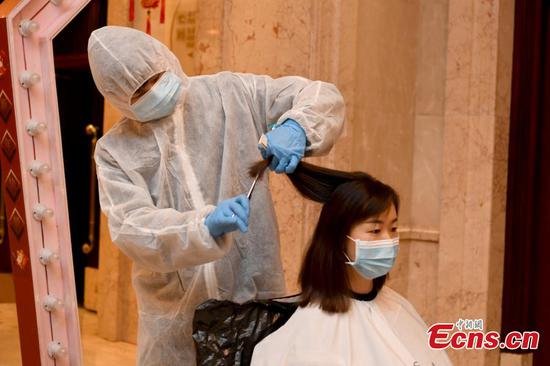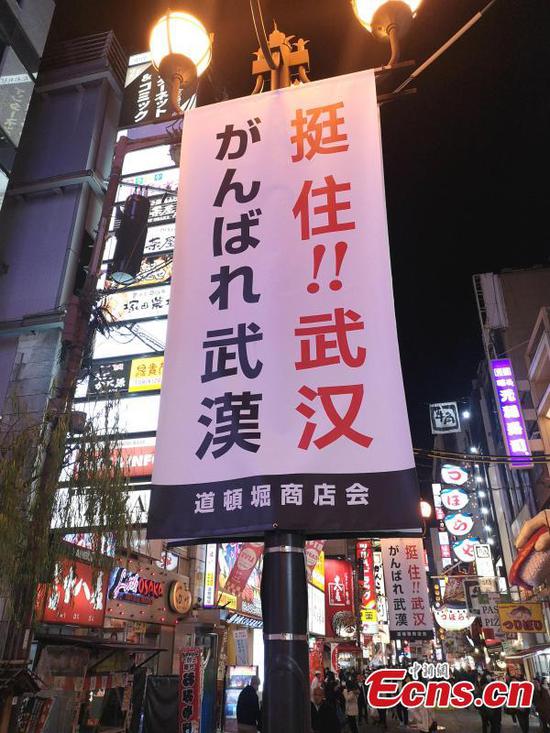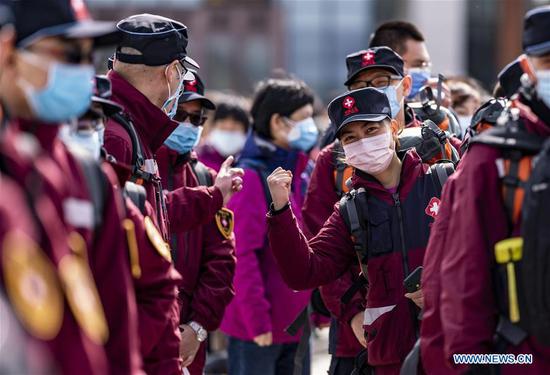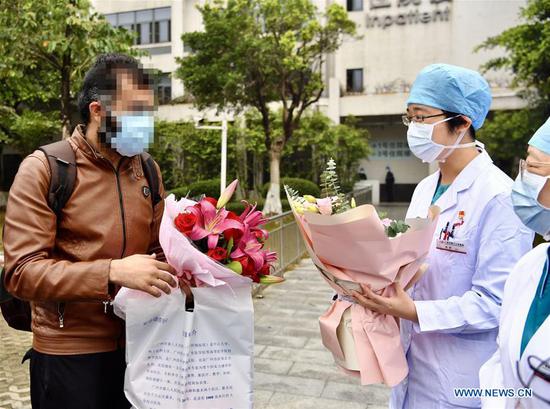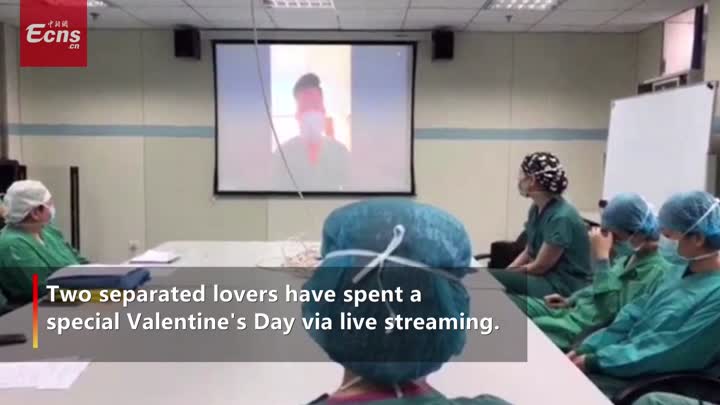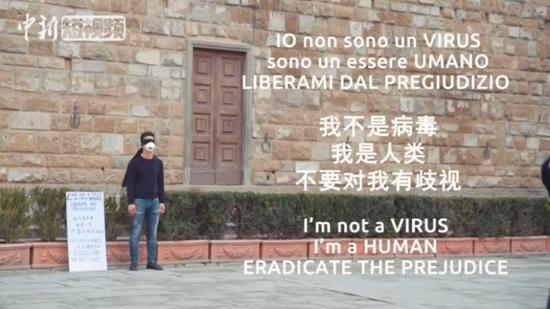
A Chinese man standing blindfolded hit back at racism in the wake of the coronavirus outbreak in Italy. (File photo/China News Service)
As China races to contain the novel coronavirus pneumonia outbreak and minimize its international spread, Chinese people living abroad are battling stigma and discrimination.
In the United States, only 15 cases of infection of the virus have been confirmed, and the immediate risk to the public remains low. But false health information has circulated, including warnings to avoid Asian food and Asian-populated areas. A barrage of vicious comments and derogatory jokes about Chinese or Asians in general has also gathered steam online.
Former U.S. ambassador to China Gary Locke said, "These negative, uninformed comments only stress the need for U.S. public health officials and government leaders to do a better job of educating the public about the virus, how it is spread and how to protect themselves."
Nancy Messonnier, director of the National Center for Immunization and Respiratory Diseases in the United States, stressed that there is no need for people to fear Asians in their community. "It's unfortunate. It really saddens me to hear these stories," she said.
Bias: Uninformed comments made
Marybeth Sexton, assistant professor in the Division of Infectious Diseases at Emory University School of Medicine in Atlanta, said, "All of the infected patients are either isolated at home or hospitalized, and public health officials are closely monitoring anyone else who is at high risk of having had exposure. There's no reason to assume that anyone you meet in public, of any ethnic or racial background, poses a risk to you."
It is critical that the U.S. public guards against any xenophobia surrounding the outbreak and let common sense prevail, as urged by officials, doctors, entrepreneurs and experts at the CDC.
Observers said the "virus" of misinformation and disinformation, which might be used to spread xenophobia, could pose a greater danger than the novel coronavirus pneumonia outbreak itself, and concern over public health should not justify any anti-Asian racism.
Stereotyping fight
During a news conference last week, UN Secretary-General Antonio Guterres said, "It's easy to move into ... perspectives in which there tends to be discrimination; there tends to be violation of human rights; there tends to be stigma on innocent people just because of their ethnicity."
In recent weeks, an 8-year-old boy from Washington state, who was wearing a facemask, was told by a worker at a sample stand in a Costco outlet to "go away" because he may have come from China, while students at Columbia University in New York City were welcomed by a Chinese-language message reading, "Wuhan virus isolation area".
The health services center at the University of California at Berkeley listed xenophobia toward Asians as a "normal reaction" in an Instagram post on managing fear and anxiety about the outbreak; videos of Asians eating bats accompanied by inaccurate speculation about the cause of the virus and dehumanizing comments went viral; and The Wall Street Journal published an opinion piece titled "China is the Real Sick Man of Asia."
Reports of such racist incidents have sparked public outcry, prompting many to speak out and actions to be taken.
Costco has since apologized to the boy and his family; Columbia University has called on students to report any racist incidents; UC-Berkeley has revised its handout, which now reads, "Be mindful of your assumptions about others" and "Self-awareness is important in not stigmatizing others in our community".
The bat-eating video was shot in the Pacific island nation of Palau, where the dish is a delicacy; and social media users have accused The Wall Street Journal article of resurrecting an archaic stereotype while making light of a serious outbreak. An online petition, demanding an apology from the newspaper to the Chinese community and either a retraction of the article or a rectification of the headline raised more than 113,000 signatures in just days.
Meanwhile, Peter Koo, a New York City Council member for a district that includes Flushing, where more than one-third of the 150,000 residents are Chinese Americans, warned against calling the virus "Wuhan coronavirus" or "China coronavirus."
"Viruses are color-blind. Naming a virus after a country or a city is an unfair insult that exacerbates discrimination against people from China," Koo said.
Understanding needed
A recent video on Twitter showed a man attacking an Asian woman wearing a mask at a subway station in Manhattan, New York, while cursing her and shouting, "Don't touch me!" The man called her "diseased," according to Tony He, a New York resident who posted the video.
Asians often wear facemasks for self-protection from germs, allergies and dust. Since the viral outbreak, many Chinese living abroad have been wearing surgical facemasks in public areas, but few people foresaw that this could heighten fear and generate dislike among the U.S. public.
Koo said his office has received complaints from parents whose children are bullied when they wear facemasks at school, adding that while many people might only wear masks when they are sick, they should not stigmatize Asians for doing so.
"I hope Americans will understand that when Asians wear facemasks, it does not mean they are sick. But it takes time and education to change cultural perceptions," he said.
Koo's deputy chief of staff Scott Sieber, who has years of experience in Asian communities, said he actually appreciates Chinese wearing facemasks.
He said this indicated that people were taking precautions and looking after those around them, adding, "I understand this, as I am familiar with the culture."
The CDC and doctors in general believe there is no need to wear a mask in the U.S., but are urging people to wash their hands often and avoid going out in public when they become sick.
But Locke, who used to be governor of Washington state and is a former U.S. secretary of commerce, said the CDC is only making a recommendation, not a requirement or a law.
"Americans in general, and the Chinese community in particular, are free to do as they wish, without any repercussions," he added.
Charlie Woo, co-founder and CEO of toy manufacturing company Megatoys in Los Angeles, called on Asian Americans to continue explaining that they are not sick just because they are wearing a facemask.
"If any Asian feels more comfortable wearing a facemask, he or she has every right to do so," said Woo, who is also vice-chair of the Committee of 100, a group comprising leading Chinese Americans striving to ensure full inclusion in the country and to advance U.S.-China relations.
"The United States has had racial issues since the beginning. Hopefully, we make progress one day at a time," he said.
Chinatowns still safe
Angela Wang, the owner of a decade-old hair salon in Flushing, said one-third of her regular customers used to be non-Chinese, but two days after her employees started wearing facemasks, these clients all stopped returning. There has also been a significant drop in the number of her Chinese customers.
"All of us have taken off the masks, but our business has declined by 90 percent in the past week. If customers are not coming back and rents are not going down, we might have to shut down within two months," said Wang, who arrived in the U.S. 18 years ago from Zhejiang province.
Her salon is just one of many businesses struggling financially in Flushing. A sales manager of a spacious dim sum restaurant believed the outbreak could deal the neighborhood its heaviest blow for many years.
Amid fears of business slowing down in Chinatowns and Asian communities such as Flushing, city officials have told people not to change their day-to-day activities.
Mark Treyger, a New York City Council member, tweeted: "Stick to the facts about coronavirus by getting your info from trained medical professionals and reliable sources. Basic hygiene rules apply. Call out hate when you see it, and continue to shop, dine and go about your normal everyday routine."
New York City Health Commissioner Oxiris Barbot took the initiative to frequent Chinese restaurants, attend celebrations in Chinatown and share all her experiences on Twitter. "I've been disheartened by reports of bias and discrimination against the Asian community recently. Let me be clear - our public health response is about a virus, not a group of people," she tweeted, along with a picture of her and two others dining at a Chinese restaurant.
During Spring Festival she tweeted, "Today, our city is celebrating the Lunar New Year parade in Chinatown, a beautiful cultural tradition with a rich history in the city. I want to remind everyone to enjoy the parade and not change any plans due to misinformation spreading about coronavirus."
Flu a bigger threat
The CDC and the Chinese government have joined hands for the past 30 years to address public health priorities affecting the two countries and the world, according to Barbara Marston, head of the international coronavirus task force at the CDC's Center for Global Health..
She added that the CDC is preparing as if the outbreak was the next pandemic.
While the epidemic continues to dominate headlines, officials and doctors have reminded the U.S. public that influenza poses a bigger threat.
Koo said that in New York, where there have been no confirmed cases of novel coronavirus pneumonia, there is a much higher chance of becoming sick from influenza.
Sexton, from Emory University School of Medicine, said: "Getting a flu vaccine is very helpful. If people are sick with respiratory symptoms, they should put on a mask in a healthcare waiting room to avoid infecting others."
The CDC estimates that, so far this season, flu has caused at least 22 million cases of illness, 210,000 hospitalizations and 12,000 deaths.
In a recent interview with The Boston Globe, Paul Watanabe, director of the Institute for Asian American Studies at the University of Massachusetts Boston, said, "Anti-Chinese racism centered around the coronavirus outbreak isn't just ugly, it's illogical.
"The fact of the matter is we are facing a health crisis right now in the United States, and it's a domestic one and it's the flu."










